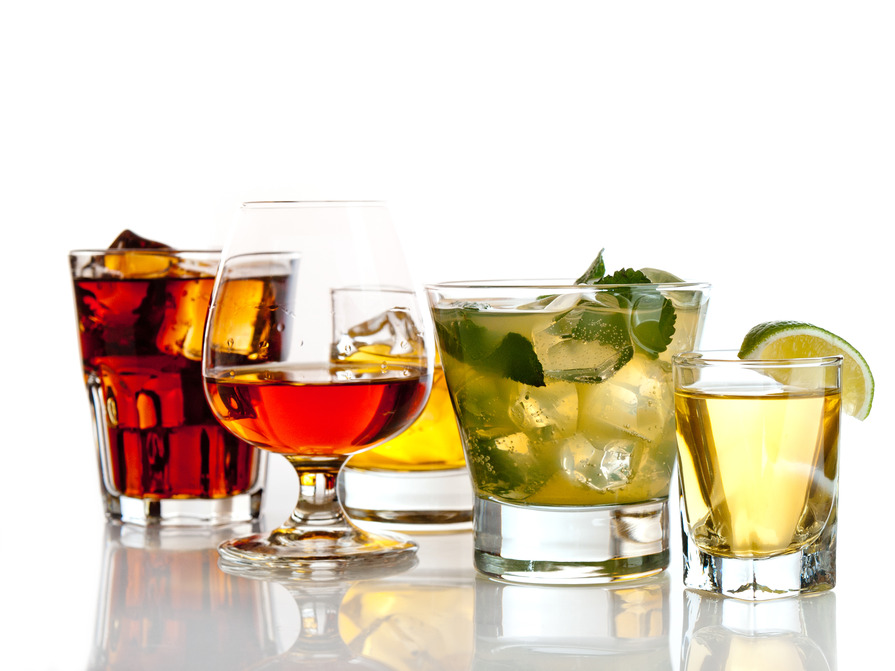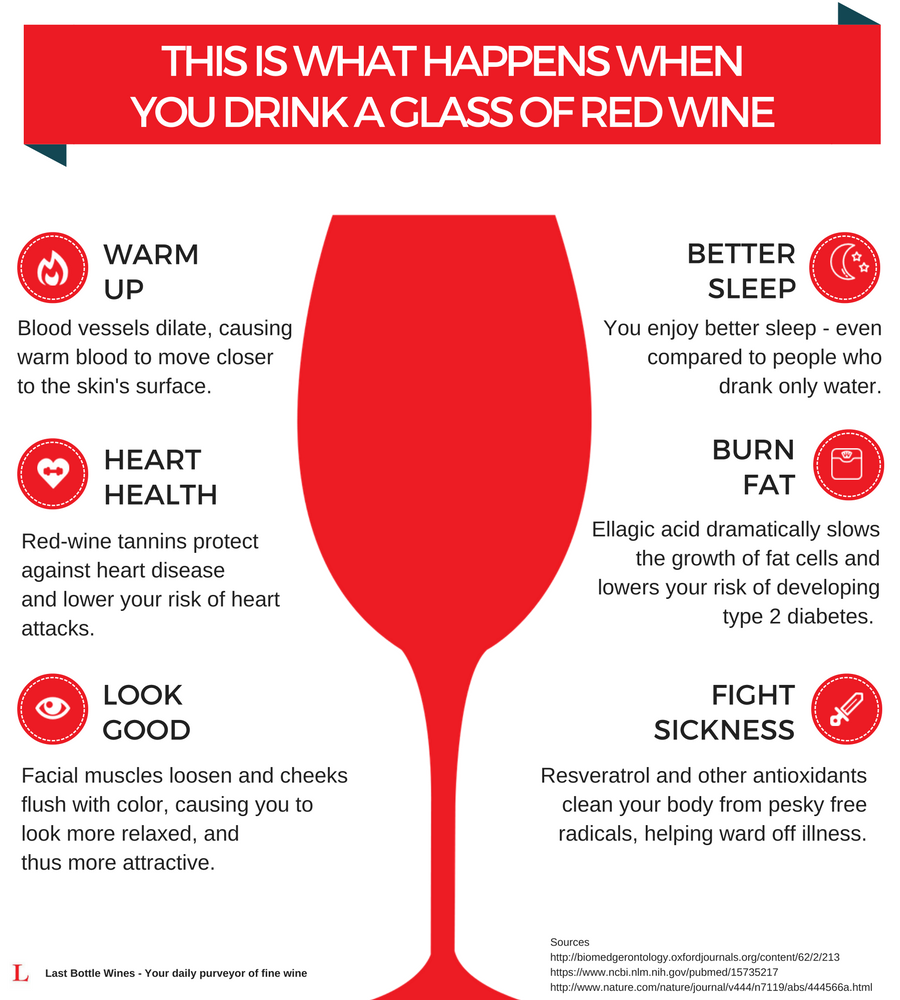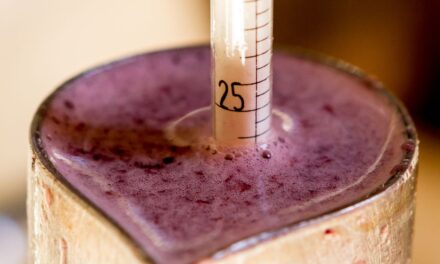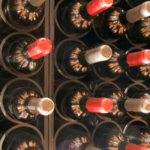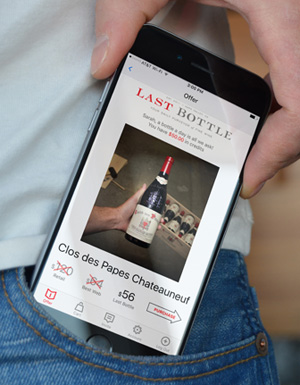How’s that New Year’s resolution to lose weight working out for you? Maybe you shouldn’t have participated in a “dry January” because in addition to improving your sex life, helping your heart, extending your life, and making your daughter’s thousandth viewing of Frozen more bearable, wine before bed might also help you shed excess pounds.
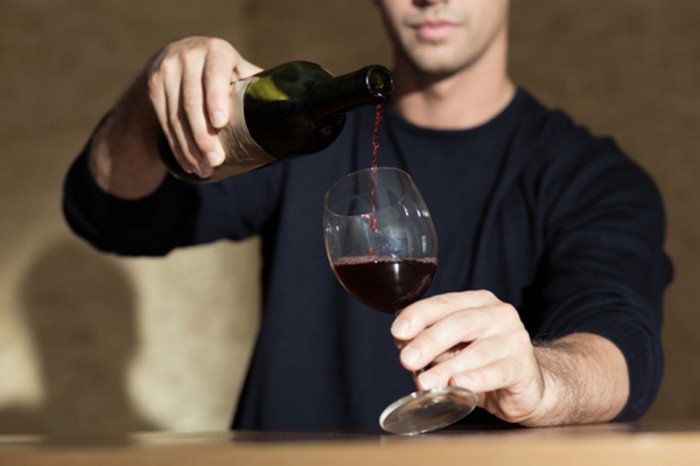
Red wine can help reduce the risk of diabetes, heart disease, and alzheimers.
Drowning bad habits
A quick look at the Last Bottle crew confirms just how integral wine is to sculpting a killer beach body, but since we don’t have any recent photos you’ll just have to trust us. And besides, other people have reported similar effects.
An article in the Daily Mail profiled four women who claim that drinking wine helps keep their weight down and curb bad eating habits. One of them was Linda Monk, a 47-year-old woman who says she lost six pounds in three weeks. She credits using wine as a “bedtime snack” to satiate cravings for “sweets, biscuits, and chocolate”.
But doesn’t a glass of wine have the same calories as a slice of cake?
While people fret over the calories in a glass of wine, it’s not so bad when compared to other choices.
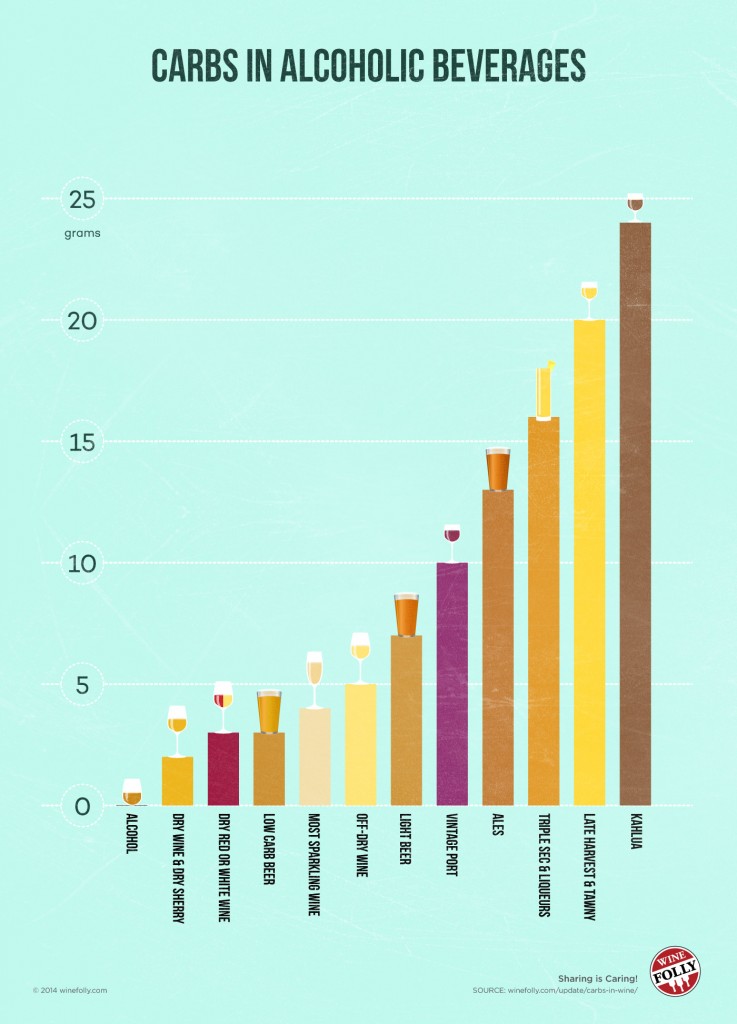
Turns out wine isn’t such a bad choice compared to other alcoholic drinks (Via winefolly.com/update/carbs-in-wine)
Studies on top of studies
Maybe you don’t fully subscribe to some anecdotes from British housewives and you’re thinking these winos will come up with anything to justify their habits. However, there’s plenty of legit science supporting these claims.
A Washington State University study pins resveratrol as the compound responsible for most of the reported benefits. Scientists gave mice amounts of resveratrol equivalent to humans consuming 12 ounces of fruit per day. They found that despite a high fat diet, the mice gained 40% less weight than animals not fed resveratrol.
“Drinking two medium glasses of wine a day or more gave the women an incredible 70 per cent reduction in obesity risk.”
Professor Min Du, from Washington State Univesity, US, said: “Polyphenols in fruit, including resveratrol, increase gene expression that enhances the oxidation of dietary fats so the body won’t be overloaded. They convert white fat into beige fat which burns lipids (fats) off as heat, helping to keep the body in balance and prevent obesity and metabolic dysfunction. We are using resveratrol as a representative for all the polyphenols.”
In layman’s terms, resveratrol prevents fat cells from getting fatter.
Now your inner skeptic is thinking, “sure, another so-called study supporting some new diet fad…”. We get it. But this wasn’t some fly by night study. It was very comprehensive by all accounts, taking place over 13 years and involving 20,000 participants .
Still, the hallmark of a valid hypothesis is others who get the same results, and in this case we have plenty of supporting evidence.
- A six-year study of 43,500 people by the University of Denmark concluded infrequent drinkers ended up with the biggest waistlines, daily drinkers had the smallest.
- Harvard University researchers tracked the weight & drinking habits of almost 20,000 women over 13 years. Of the 9,000 that put on significant weight, none were drinkers. Surprisingly, the heaviest drinkers were the skinniest!
- An eight-year study of 49,300 women by University College Medical School, London found women who drank below 30 grams a day (around two medium glasses of wine) were up to 24 per cent less likely to put on weight than non-drinkers.
- A ten-year study of 7,230 people by the U.S. National Center for Disease Control found drinkers gained less weight than non-drinkers. Alcohol intake did not increase the risk of obesity
- A 2014 study in The Journal of Nutritional Biochemistry found rats that drank red wine gained less weight than ones that drank water. It turns out red wine’s ellargic acids may slow the growth of fat cells.
The psychological effect
Scientists are good at attributing most of the benefits to fancy sounding organic compounds, but we think there’s something to be said of our own willpower. In The Power of Habit, Charles Duhigg explains how our self-control decreases as the day goes on, making it harder to resist that late night snack. The trick is to identify what triggers the habit, and substitute a less harmful replacement that still rewards the pleasure center in your brain. In this case, they trade sweets for a glass of wine, and since wine contains small amounts of sugar, it gives your brain that reward.
So go forth and pour a glass or two, but be careful! Going from a chocoholic to an alcoholic won’t do you much good. In moderation however, you can include regular wine consumption as part of your health routine.
References
http://www.news.com.au/lifestyle/health/new-book-claims-that-nightly-glass-of-wine-wont-go-straight-to-the-hips/story-fneuzkvr-1226768698384
http://www.telegraph.co.uk/news/health/news/11689799/Revealed-How-to-lose-weight-drink-plenty-of-red-wine.html
http://www.dailymail.co.uk/femail/article-3075931/How-wine-help-lose-weight-defies-conventional-wisdom-women-insist-nightly-glass-red-keeps-slim-experts-say-right.html


